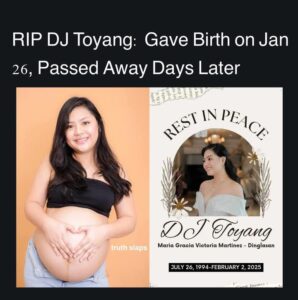Former Tesla worker Owen Diaz was awarded $137M last year for dealing with racism on the job.
“The supervisor called him the n-word 30+ times” the $137M was reduced to $15M.. he rejected the $15M & asked for a retrial and winds up only getting 3.2M.
A San Francisco federal jury has ordered Tesla to pay $3 million in punitive damages and $175,000 in economic damages to Owen Diaz, a former elevator operator at the company’s factory in Fremont, California, after he endured a racially hostile work environment during his time at the company.
Diaz, a Black man, was hired as a contract worker at Tesla in 2015 through a staffing agency. The carmaker is facing similar claims of tolerating race discrimination at the Fremont plant and other workplaces in a pending class action by Black workers, a separate case from a California civil rights agency and multiple cases involving individual workers. The company has denied wrongdoing in those cases.
Diaz had sued Tesla for violating a California law that prohibits employers from failing to address hostile work environments based on race or other protected traits.
The first jury in 2021 awarded Diaz $7m in damages for emotional distress and a staggering $130m in punitive damages. The award was one of the largest in an employment discrimination case in US history. However, Tesla previously denied any knowledge of the alleged racist conduct at the plant, which has about 10,000 workers.
If upheld, the award would be a blow to a company that has been subject to various allegations of workplace problems but requires employees to resolve disputes through mandatory arbitration, which the firm has rarely lost.
In May, an arbitrator ordered Tesla to pay more than $1 million over similar allegations by another former Fremont factory worker. That employee alleged that co-workers called him a racial slur and supervisors ignored his complaints.
Diaz and Tesla sought a retrial to decide damages after Judge William H. Orrick reduced the amount to $15 million.
A distressed and at times tearful Diaz told the court again last week about how his colleagues at Tesla used racist epithets to denigrate him and other Black workers, made him feel physically unsafe at work, told him to “go back to Africa” and left racist graffiti in the restrooms and a racist drawing in his workspace.
The drawing left at his workspace was a rudimentary one that resembled Inki the Caveman, a 1950s era cartoon widely regarded as racist, whose main character is a Black boy portrayed with big lips, wearing a loincloth, earrings, and a bone through his hair.
Diaz also testified that while he had encouraged his son to work at Tesla, he now considers that one of the greatest regrets of his life because his son was also exposed to a racially hostile workplace there.
Tesla accused of firing workers amid push to unionize
Counsel for the plaintiff, Bernard Alexander of Morrison Alexander & Fehr, in his closing arguments urged the jury to hold Tesla accountable for failing to stop and prevent the racist harassment of employees, and for the suffering Diaz endured.
“No Black man in 2015 should ever be subjected,” Alexander said, “to this plantation mentality workplace.”
Alexander also urged jurors to decide on damages in an amount that “will get Tesla’s attention.” He characterized Tesla a company that has to accuse others of lying, because they cannot explain why they would allow violations of the Civil Rights Act at their factory.
The plaintiffs asked the jury to consider punitive damages around $150 million for Tesla, and to award Diaz $6.3 million in past non-economic damages, and $2 million in future non-economic damages.
Recommended
DATA GRAPHICS
‘I got catfished by a sandwich’: Virtual kitchens boom on delivery apps
Tesla counsel Alex Spiro argued that Diaz should only be awarded damages amounting to about half of his salary, some tens of thousands of dollars, not millions. Diaz had not disclosed his salary during the course of the trial, Judge William Orrick said in the midst of Spiro’s closing argument last week on Friday.
Spiro also told jurors on Friday that Diaz “lied to you.” He characterized the former Tesla contract worker as a confrontational person, who exaggerated issues in his testimony repeatedly. Diaz had previously mis-stated the number of months he had worked at Tesla, Spiro said. Spiro also accused Diaz of lying about his suffering to a doctor in order to seek greater monetary damages from the company.
Evoking the Civil Rights Act, Diaz’s attorney called on jurors to make an example of Tesla, saying “Do justice and justice is not cheap.”
Tesla has been sued more than 200 times by current or former contractors and employees since 2018 in the U.S., according to legal records database Plainsite. That number does not account for disputes that have gone straight to arbitration. As CNBC has previously reported, where it is legal to do so, Tesla has compelled employees to agree to mandatory arbitration.
Last week, a former Tesla service manager, a Black man named John Goode, filed a lawsuit in Northern California alleging that a white man who was his manager in Georgia repeatedly made racist remarks in his presence, was racially biased against him and another Black colleague, had him fired on false pretenses in retaliation after Goode objected to this treatment.
The amount is far less than the $15m that the plaintiff, Owen Diaz, rejected last year in opting for a new trial. Diaz asked for a new trial on damages after the judge reduced the amount he was awarded in a 2021 ruling from $137m to $15m. Diaz accused Tesla of failing to act when he repeatedly complained to managers that employees at the Fremont factory frequently used racist slurs and scrawled swastikas, racist caricatures and epithets on walls and work areas.
Tesla’s lawyer, Alex Spiro, countered that Diaz was a confrontational worker who had exaggerated his claims of emotional distress, and said his lawyers failed to show any serious, long-lasting damage caused by Tesla.
Diaz testified last week, tearfully recounting various incidents during the nine months that he worked at the Fremont factory. Diaz said the job made him anxious and strained his relationship with his son, who also worked at the plant.
Discover more from KossyDerrickent
Subscribe to get the latest posts sent to your email.








